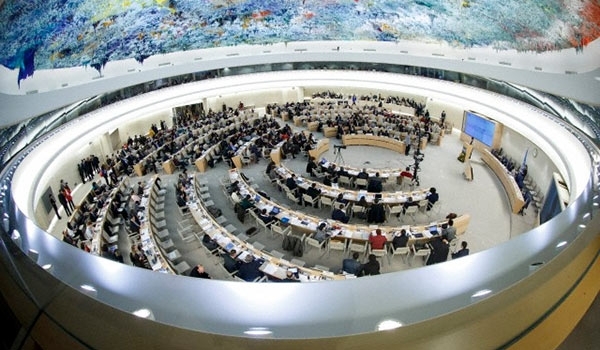
RNA - UN High Commissioner for Human Rights Zeid Ra'ad al-Hussein says Trump's "persistent flirtation" with a return to torture could lead to the exploitation of tactics like waterboarding and other so-called enhanced interrogation techniques by governments. His comments come after Trump said in January that waterboarding "absolutely works," echoing the support he expressed for the practice on the campaign trail.
Zeid also points to recent comments by British Prime Minister Theresa May, who talked of flouting human rights laws in order to rid the United Kingdom of suspected terrorists. Following attacks in Manchester and London, May told reporters, "If human rights laws get in the way of doing these things, we will change those laws to make sure we can do them.” The UN high commissioner called May's remarks "a gift from a major Western leader to every authoritarian regime around the world that shamelessly violates human rights under the pretext of fighting terrorism."
Whatever the intention behind such remarks, they are highly regrettable. And it’s not just the Western leaders:
When Saudi Arabia – which has been spearheading a coalition of Arab states in a devastating war against Yemen since 2015 – was accused of bombing civilians, and particularly children caught up in the conflict, the regime in Riyadh threatened to cut off humanitarian funding to the world body. As a result of the looming threat, Saudi Arabia was delisted from the “offending” annex to a UN report last year, largely in order to appease the Saudis.
This is getting more common, not only with autocracies under duress, but with countries getting inspired by this maddening inconsistency with multilateralism. Right-wing elements in Israel and the United States, for example, have also threatened to pull out over criticisms of Israel’s human rights violations in the West bank and Gaza, and there are periodic attempts by the Trump White House for a pullout.
It’s an attack on International Human Rights Law and International Law. The UN Human Rights Council’s ability to successfully expose and hold violators to account is under threat because a number of countries use it to thwart attempts to expose their own crimes and abuses. Electing council members that are truly committed to improving human rights is, therefore, the responsibility of each and every UN member country.
The truth is, Saudi Arabia and the United States don’t honor the ideals that underpin the Council. They are instead turning the Council into a rogues’ gallery. Under the UN Charter, these countries are required to put an end to closed slates, scrap vote-trading, and be clear that members elected should expect their own human rights records to be subject to increased scrutiny during their terms. Their gross disregard for civilian lives in Iraq, Syria and Yemen make them unfit to serve on the Council. They have allied with terrorist groups, carrying out airstrikes to support regime-change campaigns that have indiscriminately killed and wounded countless civilians in violation of the laws of war.
Under UN General Assembly Resolution 60/251, which established the Human Rights Council, UN member states “shall take into account the contribution of candidates to the promotion and protection of human rights and members elected to the council shall uphold the highest standards in the promotion and protection of human rights and fully cooperate with the Council.”
Measured against these standards, neither the United States nor Saudi Arabia belongs on the Human Rights Council. The Council was created in 2006 to replace the failed UN Commission on Human Rights, which had largely been unwilling to address real human rights concerns. Over the last 10 years, the Council has always failed ensure solid investigations into American-Saudi abuses, specially when they refuse to cooperate.
The Council needs to be vigilant to avoid the problems that plagued its predecessor, including a loss of credibility from admitting countries with little regard for the international human rights standards. UN member states should raise the bar on Human Rights Council membership. The Council can and should be a credible instrument for exposing and ending human rights abuses worldwide. For this, all members need to ensure healthy competition and qualified candidates for every seat, instead of cutting backroom deals and arm-twisting weaker members.
847/940